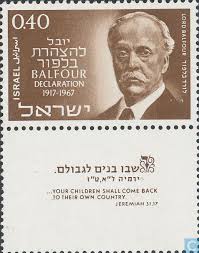“Pessimism,” says my teacher Donniel Hartman, “is a luxury we cannot afford.” There is simply too much at stake at this political moment in Israel.
By now, regular readers of this blog know that I’m utterly preoccupied by the Israeli pro-democracy protests. It’s been two weeks since I’ve returned from Jerusalem, and I’m still processing all that I experienced. As the very fabric of Israeli society appears to be unraveling. I have no doubt that the righteous protesters in Israel are fighting for the nation’s soul.
“For me, Judaism is the antonym of defeatism and hopelessness. So, for that matter, is my Zionism.
”
As you know, Netanyahu’s coalition just struck down the Supreme Court’s ability to declare extreme legislation “unreasonable.” This is just the first salvo in an attack on one of the basic pillars of democracy: a system of checks and balances of the legislature by an independent judiciary. No wonder the despicable National Security Minister Itamar Ben Gvir—a racist thug with a terrorist background—tweeted that “the salad bar is open.” What he meant: This initial legislation is just the appetizer; a full entrée of laws castrating the court and dismantling democratic norms is now on its way to being served from the legislative kitchen.
This is what those demonstrations in the streets of Israel are fighting against.
I’ve written about this in previous posts over the past few months. But today I’m struck by what I’m hearing from some American Jews, and I’m distressed.
Since my return, I’ve heard from many acquaintances—in person, via email, and on social media:
Many are despondent about what’s taking place in Israel.
Some have suggested that they’ve lost hope in Israel’s future: the ultra-nationalist, theocratic takeover is nearly complete.
Some have said that, after a lifetime of supporting Israel, that they’re “out,” and can no longer pay lip service to a regime so antithetical to their democratic values.
Some are saying they will now refocus their identity as a “proud Diaspora Jew,” shaping a Jewish identity that excludes Zionism.
Some well-known Israeli pundits—and not necessarily those of the left—are grieving Israel’s future.
Some rabbis in prominent synagogues have announced that they can no longer recite Tefillat HaMedina / the Prayer for Israel at Shabbat services. Periodically we hear of rabbis (in non-prominent communities) declare that they are non-Zionist, if not outright anti-Israel.
And so on.
I don’t know how widespread those feelings of defeat are, but the sentiment is growing. And for every Jew who declares that they’re “out,” there will no doubt be a much larger number of silent resignations, of Jews who simply will construct their Jewish lives without Israel.
I feel the pain that is inherent in every one of those exchanges. These are the heartfelt reflections of people who historically have acknowledged that Israel’s situation is different from ours: its battle against bloodthirsty enemies is existential. But many of these same individuals are now asking: How can I support a regime whose values have so profoundly diverged from my own?
But I can’t go there. And it’s desperately important that you don’t, either. We cannot afford pessimism—not when there is so much on the line.
This is my respectful response to all those friends and students who have shared their fears and concerns with me:
Our Israeli friends need our support, now more than ever. I’m quite clear that the battle that Israel is facing—from within this time—is as much an existential battle as it has ever faced from external enemies.
All around the country, hundreds of thousands of Israelis have been demonstrating for more than half a year, every Saturday night. (Israel’s population is approximately 9.7 million people. Do the math and be amazed by the breathtaking, massive proportion of the country that has taken to the streets in the name of democracy!)
Here are three more points I’d ask every person who is wavering to keep in mind:
(1) The protests have been going on for 30 weeks!, and show no sign of weakening.
(2) The patriotism of the demonstrators. The rallies are oceans of blue-and-white, with flags everywhere. Most rallies open or close with “Hatikvah.” In a world where the right wing tends to co-opt patriotic symbols, this is remarkable.
Consider this, by way of contrast. During the Trump years, I and many of you went to our share of political rallies: the Women’s Marches and Black Lives Matter. We believed in those causes. But what would it have taken for us to go and demonstrate every single Saturday night for months on end? That’s the depth of the commitment Israel’s pro-democracy camp has made.
And for that matter: Imagine showing up at a Women’s March or BLM rally with an American flag and singing the national anthem. It would have been more than strange—it would have been completely tone-deaf and out of place. By contrast, the rallies in Israel are a united call of the authentic voice of Zionism: democratic, patriotic, and inclusive.
(3) What about the “insurmountable demographics” that we keep hearing about? Some of the defeatism has stemmed from a great resignation that these battles will never end, as birthrates among the religious right soar.
But that misses the point of what these demonstrations are all about. Because the revolt against Netanyahu’s coalition is not primarily a leftist revolt. It is a great upheaval by the broad democratic MAJORITY of the country: the center-left, center, and center-right. They may disagree on a wide variety of public policies, but who completely agree about the heart of the matter: That Zionism and Judaism are inherently democratic, and that an assault on Israel’s basic democratic institutions endangers everyone.
For me, Judaism is the antonym of defeatism and hopelessness. So, for that matter, is my Zionism.
For those with long memories, there have been dark times before. Israel emerged from the ashes of the Shoah—when 1/3 of the Jews in the world were murdered and the very question of any Jewish future at all was worth considering. There was June 1967—and a news blackout when it wasn’t clear for several days whether or not Israel had been wiped off the map. There was October 1973, when Jews ran from their synagogues on Yom Kippur to fight off a multilateral sneak attack by there enemies. There was, and remains, the threat of a nuclear Iran.
In none of these moments did we concede defeat or abandon our vision of the future.
Diaspora voices in this struggle are crucial. Israelis are telling us that we are desperately needed for this battle. If you’ve ever been inspired by Israel’s seemingly endless reserves of innovation and perseverance in the face of implacable enemies… well, this is the moment when that inspiration and fortitude is needed more than ever.
Reliable polls show that this government has lost the backing of its supporters and a significant majority of Israelis—left, center, and the democratic right. A line has been crossed by the empowerment of theocratic fascists: that’s what those demonstrations are about.
There are no guarantees. Who knows how much damage this regime can wreak before it collapses or is voted out? But I do know this: If America’s liberal Jews sit this one out, or if we renege on the seventy-five-year commitment to the State of Israel, we will be complicit in empowering the forces of an anti-democratic theocracy in the Jewish state.
I’m writing these words on Tu B’Av, a date in the Jewish calendar devoted to love. “Love” is the way I was raised to describe our relationship to Israel. Love, of course, demands conviction and dedication over the long haul. We say to people whom we love: “My love for you is not conditional. We will, on occasion, disappoint one another. I will challenge you and criticize you when you let me down. But my commitment to you is undying.”
If you share similar sentiments, please: Do not submit to defeat. Recall the words of the Talmud, written in tears at another time of Jewish anguish:
,כּל הַמִּתְאַבֵּל עַל יְרוּשָׁלַיִם — זוֹכֶה וְרוֹאֶה בְּשִׂמְחָתָהּ
.וְשֶׁאֵינוֹ מִתְאַבֵּל עַל יְרוּשָׁלַיִם — אֵינוֹ רוֹאֶה בְּשִׂמְחָתָהּ
Whoever mourns for Jerusalem will merit to see her future joy,
and whoever does not mourn for Jerusalem will not see her future joy. (Ta’anit 30b)
Those words tell me that we will win this struggle, too. But we must not surrender to despair. To be part of the grand wonder of Israel means we must share in her battles, and not give up on the vision of what the state could and should be.




